Resources
We have produced a range of journal articles, tool kits, briefs, videos, webinars and other outputs that can help you think through how to take a gendered approach to health systems research and support ethical practice.

Ethical practice in my work: community health workers’ perspectives using photovoice in Wakiso district, Uganda
Health service delivery should ensure ethical principles are observed at all levels of healthcare. Working towards this goal requires understanding the ethics-related priorities and concerns in the day-to-day activities among different health practitioners. These practitioners include community health workers (CHWs) who are involved in healthcare delivery in communities in many low-and middle-income countries such as […]
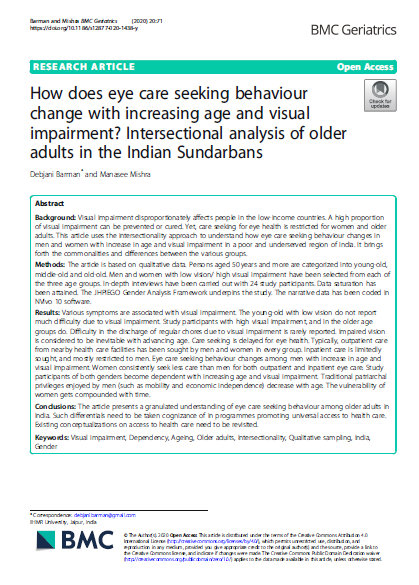
Intersectional analysis of eye health in older adults in the Indian Sundarbans
Visual impairment disproportionately affects people in low-income countries. A high proportion of visual impairment can be prevented or cured. Yet, care seeking for eye health is restricted for women and older adults. This article uses an intersectional approach to understand how eye care seeking behaviour changes in men and women with increases in age and […]
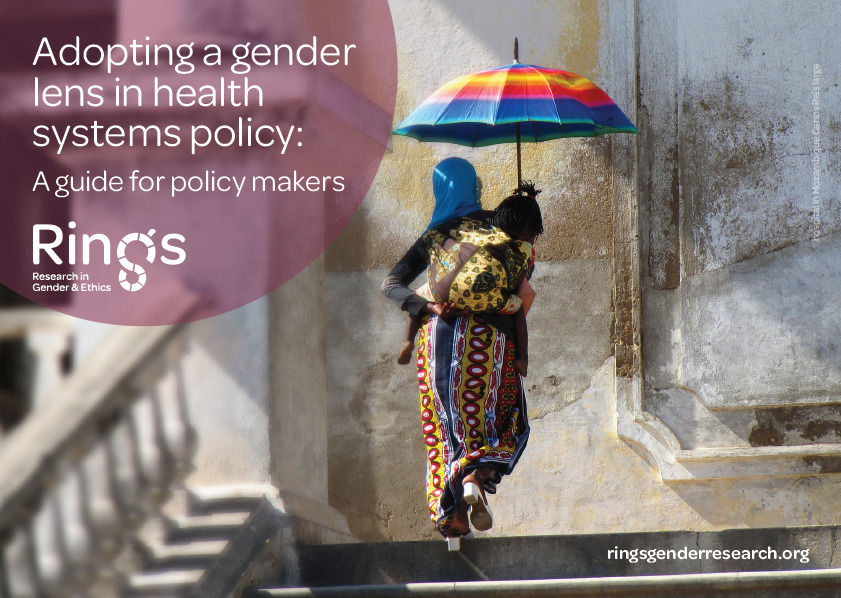
Adopting a gender lens in health systems policy: A guide
Policy makers should consider gender at all levels of the health system, and in all activities. This would lead to a more equitable health system that serves everyone, and meets health goals. Many policy makers are interested in gender equity, but lack guidance on how to implement changes in the health system. Questions of gender […]
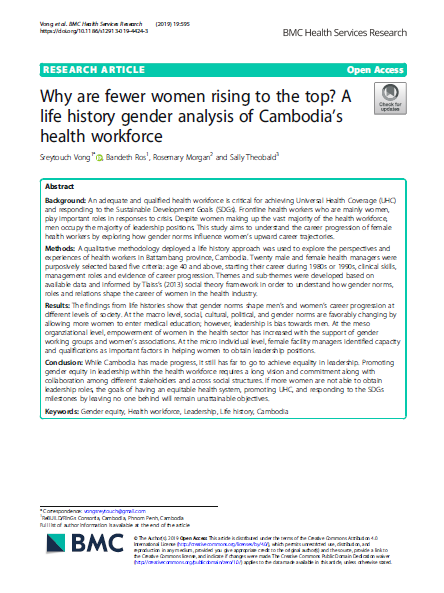
A life history gender analysis of the health workforce in Cambodia
While Cambodia has made progress, it still has far to go to achieve equality in health leadership.
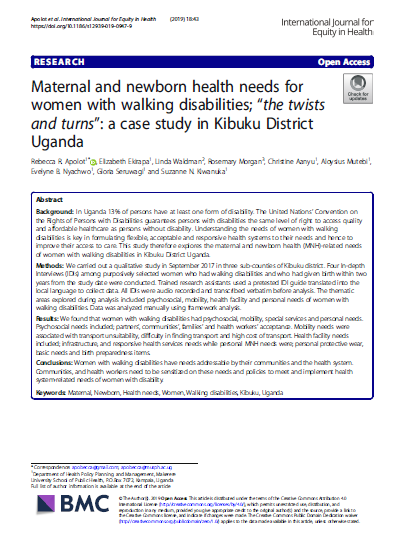
Maternal and newborn health for women with walking disabilities in Uganda
Understanding the needs of women with walking disabilities is key in formulating flexible, acceptable and responsive health systems to their needs and hence to improve their access to care.
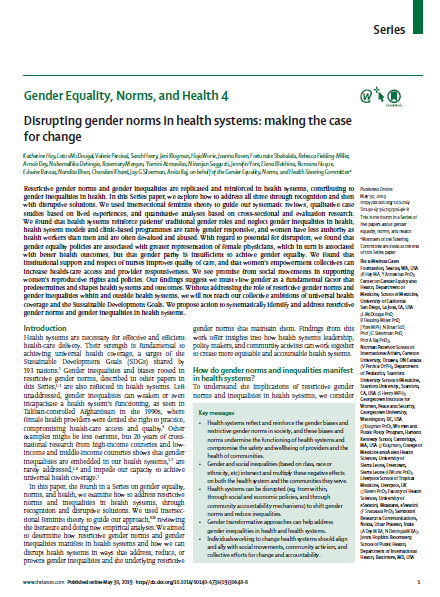
Disrupting gender norms in health systems
Restrictive gender norms and gender inequalities are replicated and reinforced in health systems, contributing to gender inequalities in health. In this paper, we explore how to address all three through recognition and then with disruptive solutions. We used intersectional feminist theory to guide our systematic reviews, qualitative case studies based on lived experiences, and quantitative […]
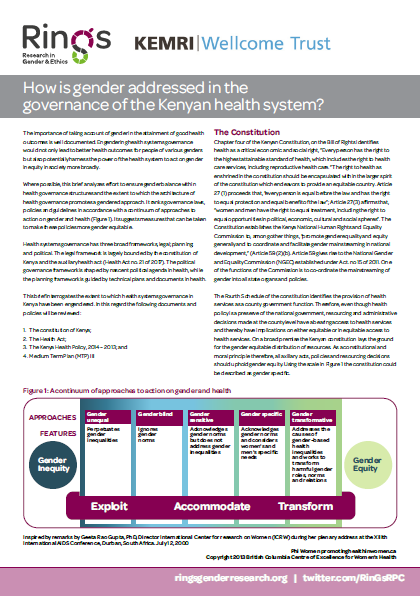
How is gender addressed in the governance of the Kenyan health system?
The importance of taking account of gender in the attainment of good health outcomes is well documented. Engendering health systems governance would not only lead to better health outcomes for people of various genders but also potentially harness the power of the health system to act on gender inequity in society more broadly. Health systems […]
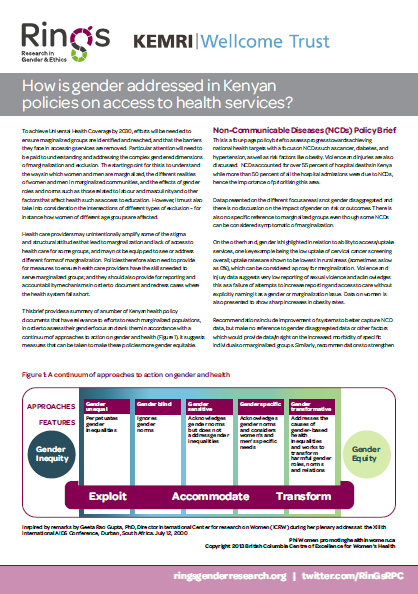
How is gender addressed in Kenyan policies on access to health services?
To achieve Universal Health Coverage by 2030, efforts will be needed to ensure marginalized groups are identified and reached, and that the barriers they face in accessing services are removed. Particular attention will need to be paid to understanding and addressing the complex gendered dimensions of marginalization and exclusion. The starting point for this is […]
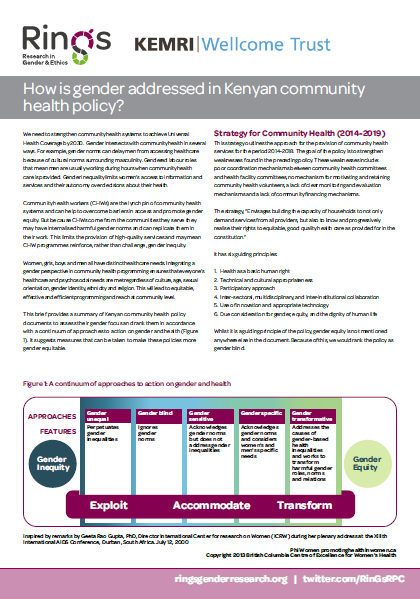
Community health policy in Kenya. How is gender addressed?
We need to strengthen community health systems to achieve Universal Health Coverage by 2030. Gender intersects with community health in several ways. For example, gender norms can delay men from accessing healthcare because of cultural norms surrounding masculinity. Gendered labour roles that mean men are usually working during hours when community health care is provided. […]

Alen Mkhwana: Why is gender important for health systems policy in Kenya?
A short interview with Alen Mkhwana of the African Academy of Sciences on gender and health systems policy in Kenya.
